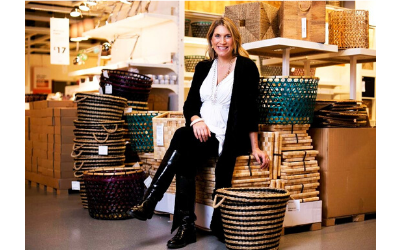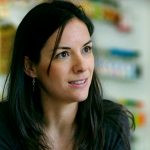
Let’s discuss powerful women in important environmentally friendly rolls around the world that are leading the way in green energy and sustainability.
These women are leading influencers in creating a sustainable future, some working for well-known brands like PepsiCo, and IKEA, all the way to smaller organisations like Good Energy.
These 2020 influencers see the importance of making their product or service environmentally friendly, profitable, and having a continued positive impact on the world.

Ewelina Samchalk, sustainability senior director at PepsiCo, and her team are doing their part to curb climate change by reducing greenhouse gas emissions across their chain. Their most famous products, Lays crisps and Pepsi will soon be made with 100% renewable energy in the United States of America as they transition their facility this year. Ewelina is the leading lady in the Performance with Purpose 2025 agenda across the world with PepsiCo’s brands and functions.

The head of sustainable and healthy living at IKEA, Joanna Yarrow, and her green energy team create the inspiration, through sustainability, to millions of customers worldwide. They produce 100% sustainable materials like their ‘made with cotton’ range. Since the 1st of September 2015, all the cotton used by IKEA, comes from more sustainable sources that include key factors in water management. Joanna and her colleagues think hard about the way they work, from how they choose materials, to how they design, produce, transport, sell and even what happens to their products at the end of their life cycle.

L’Oreal USA’s vision is to make beauty sustainable and to make sustainability beautiful. They are committed to improving the way they do business from research to operations, from marketing to communications. Danielle Azoulay drives change as the head of CSR and sustainability of the largest beauty company in the world and is an inspiring voice on positive outcomes for people and the environment.

Kate Brandt, the Google sustainability officer, leads the team across Google’s worldwide operations, products, and supply chain. They are raising the bar in making smart use of the Earth’s resources and creating products with people and the planet in mind. They focus on developing services that improve the lives of as many people as possible while operating in a sustainable way.

Water, energy, and packaging materials are all vital parts of the Kelloggs organisation that require a sustainability approach for 2020 and beyond. Paloma Lopez leads the global strategy team on implementing these responsibilities of the company. Their commitments include responsible sourcing of the materials, ingredients, and even women farmers and workers. They also include conserving natural resources in energy, packaging, and waste.

Beatriz Perez, communications and sustainability officer at Coca-Cola has spent her career bringing sustainability to the masses through her role at Coca Cola. The large, world-known brand aims to make their global packaging 100% recyclable by 2025. They promise to return clean water back to communities and nature from their initiatives. Through partnerships and shared knowledge, they improve water security where it is needed most.

Another large company is McDonalds, their goals in sustainability for our future is based on climate action, beef sustainability, packaging and recycling, commitment to families and youth opportunities. Climate change is the biggest environmental issue of our time. That’s why they are committed to reducing emissions right along their value chain, from farm to restaurant to customer. Francesca DeBiase, Executive Vice President and Chief Supply Chain and Sustainability Officer is the leading force behind these goals.

Mars Incorporation plans to rethink their packaging on their famous food and drink products. They believe that there is no such thing as a sustainable product if it is in an unsustainable package. Kate Wylie, the global vice president of sustainability for Mars, along with her team, has come up with a packaging plan 2025. This includes that 100% of their plastic packaging will be reusable, recyclable or compostable.

Jessica Sansom, the former head of sustainability for Innocent Drinks, wants to take full responsibility for the impact of their business on the society and environment. They ensure that every area of their supply chain meets its sustainability standards. They want to leave things better than the way they find them and aim for their impacts to have a positive on the environment.

In 1999 Good Energy was founded by Juliet Davenport. The company’s mission is to transform the UK energy market by helping homes and businesses to be part of a sustainable solution to climate change. They host over 1,400 different locations across the UK where they harness sources like sustain, wind, rain, and biofuels to help provide electricity to customers. Juliet wanted to make it easier for people and businesses to generate their own electricity and so the company, Good Energy was created.